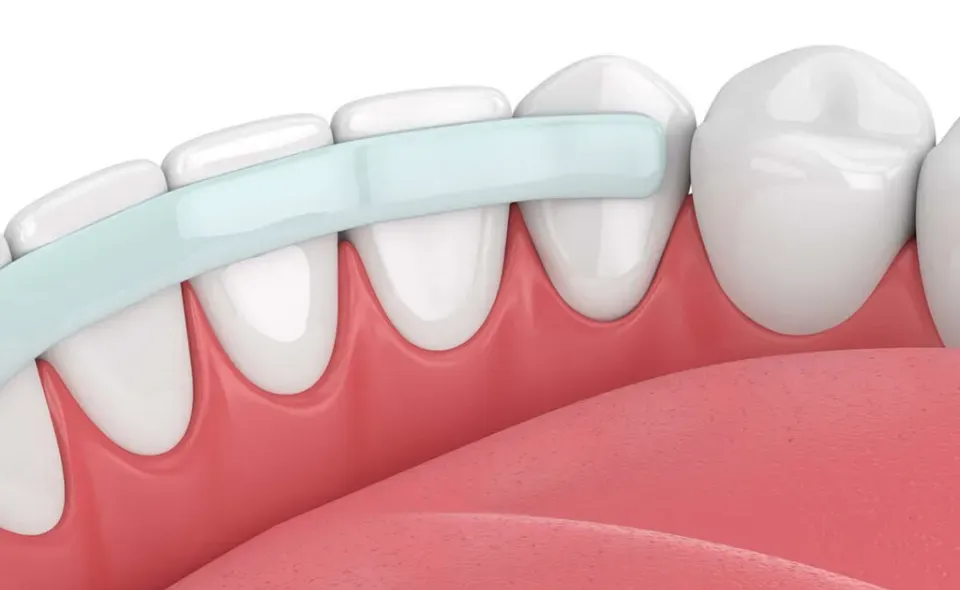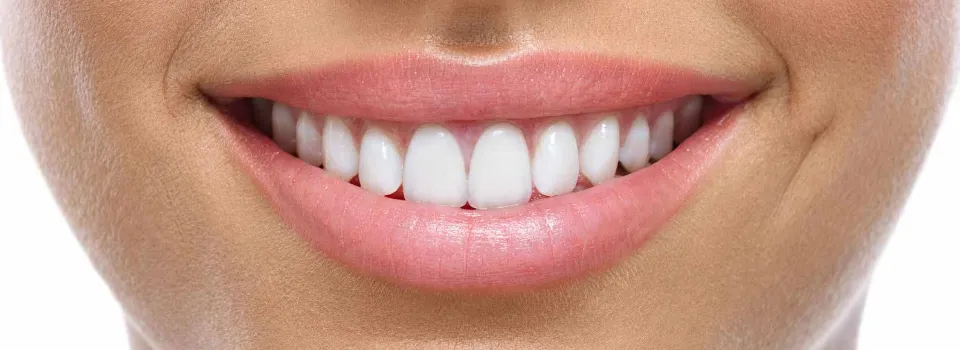A cosmetic dental procedure like tooth bonding can restore your confidence if you have a chipped or cracked tooth and allow you to show off your beautiful smile. So what is teeth bonding exactly?
Tooth bonding is a procedure where your dentist applies tooth-colored composite resin to one or more of your teeth to repair damage.
Here is what you need to know about tooth bonding, including the risks and expenses involved.
What is Tooth Bonding?
Tooth bonding (dental bonding) is a cosmetic dental procedure that repairs a chipped, cracked, or otherwise broken tooth. Additionally, it helps lengthen a tooth that is shorter than the others and treat tooth gaps.
The “bond” is a composite resin the takes over where your tooth broke to make it look as good as new.
The composite color will be comparable to the color of the tooth, unlike a crown (used for fillings), so it will continue to look natural.
Related Reading: Can You Whiten Bonded Teeth?
How is Dental Bonding Done?

Fortunately, dental bonding is an outpatient procedure that usually only requires one appointment.
To repair your broken tooth, your dentist will use a resin made of composite plastic.
You’ll have a new tooth that blends in with your smile because the resin is ideal for molding. Here are the steps you can expect out of a dental bonding procedure:
- Step 1: To create the ideal bonding surface, a dentist will clean the tooth.
- Step 2: The bonding material will be formed and resin will be applied.
- Step 3: The bonding substance will then be dried using a UV light before being further shaped.
- Step 4: Your dentist will floss the tooth to ensure the restoration is smooth and will polish the bonding for a natural shine.
The bonding procedure is typically finished in 30 to 60 minutes. However, it might require several visits if you need multiple teeth treated.
The majority of tooth bonding procedures don’t need anesthesia, so you can resume your normal daily activities right away after your appointment.
Advantages of Teeth Bonding
Teeth bonding is widely performed. In fact, it was found to be the second-most frequently used procedure in a 2015 survey of cosmetic dentistry offices.
There are many causes for this popularity. The advantages of teeth bonding include:
- Low-risk: Since dental restorations only cover the surface of the tooth, dental bonding is extremely safe. The procedure is entirely reversible, and the risk of complications is very low.
- Minimally-invasive:For teeth bonding, little to no enamel needs to be removed, in contrast to other procedures like placing porcelain veneers. There is also no need for a recovery period.
- Cost:Typically less expensive than the majority of other cosmetic procedures is teeth bonding. Dental veneers, a popular substitute, are significantly more expensive.
- Fewer appointments:The majority of direct bonding procedures only require one appointment.
What Are the Risks Involved in Teeth Bonding?
Dental bonding doesn’t have any major risks.
Remember that the composite resin used in this procedure isn’t as sturdy as your natural teeth.
The material has a chance of chipping or separating from your natural tooth. With a crown, veneer, or filling, however, chipping or breaking don’t happen as frequently.
If you chew on ice, pens, pencils, your fingernails, hard foods, or candies, your bonded tooth may chip.
In addition, the resin is less stain-resistant than other dental materials. If you smoke or drink a lot of coffee, you could get some discoloration.
Who Does Teeth Bonding Work Best For?

Tooth bonding is best for teeth that suffered minor injuries and aren’t severely decayed.
You might prefer a dental implant over bonding if you lost a tooth (or the majority of a tooth) or the tooth is severely damaged. With an implant and a porcelain crown, dental implants completely replace the tooth and its root.
Additionally, tooth bonding is best for people who are already happy with the color of their teeth. Before consulting your dentist about teeth bonding, you should consider getting the teeth whitening you’ve always wanted.
If you later whiten your teeth, the color of your natural enamel will lighten, but the color of the bond won’t change. Your dentist will match the bond to the color of your natural teeth.
How to Take Care of Your Bonded Tooth?
A bonded tooth’s lifespan can be increased by maintaining good oral hygiene. Self-care tips include:
- Brushing at least twice a day and flossing daily
- Avoiding hard food and candy
- Not biting your nails
- Avoiding coffee, tea, and tobacco for the first two days after the procedure to avoid stains
- Scheduling regular dental cleanings every six months
If the bonding material is accidentally broken or chipped, or if you notice any rough or sharp edges after the procedure, consult a dentist.
How Much Does Teeth Bonding Cost?
The cost of tooth bonding varies based on location, the extent of the procedure, and dentist expertise.
The typical price range for a tooth is between $300 and $600. Every five to ten years, the bonding will need to be replaced.
Before making an appointment, check with the company that handles your dental insurance. Dental bonding is not covered by some insurance companies because they view it as a cosmetic procedure.
Conclusion: What is Teeth Bonding
Tooth bonding is a simple way to repair chipped or discolored teeth and give you back the confidence you need to flash your pearly whites.
Healthy teeth that have undergone minor trauma or damage respond best to the procedure. Additionally, prior to getting your bond, you should generally be satisfied with the shade of your teeth.
If you’ve always wanted to whiten your teeth in advance of your bond, discuss the option with your dentist.
FAQs
Is Dental Bonding Permanent?
No. Because dental bonding doesn’t require enamel removal, it can be reversed at any.
Is Bonding Good for Front Teeth?
Dental bonding is an excellent way to improve the appearance of your two front teeth and boost your confidence if you are self-conscious about them.
How Painful is Dental Bonding?
It is not particularly painful to bond teeth. Probably even no painkillers will be necessary for you. After the procedure, though, you might experience some tooth sensitivity to heat and cold.




